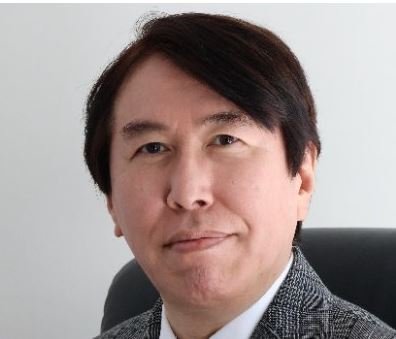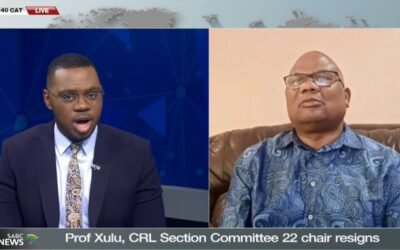The anti-cult lawyers try to rewrite history. The campaign against the Unification Church was driven by political, not consumer protection, motivations.
by Massimo Introvigne

A recent political clash in Japan has reignited scrutiny over the motivations behind the country’s long-standing campaign against the Unification Church, now known as the Family Federation for World Peace and Unification. Attorney Masaki Kito, a prominent anti-cult activist, publicly criticized the Liberal Democratic Party (LDP) for establishing parliamentary ties with the small NHK Party, which he accused of being closely connected to the Unification Church. Kito claimed this alliance proves the LDP has not severed its ties with the Church, despite previous promises to do so following the assassination of former Prime Minister Shinzo Abe.
However, Kito’s accusations were swiftly challenged by NHK Party representatives and former NHK Diet member Satoshi Hamada, who has individually spoken out against violations of religious liberty targeting the Unification Church. Hamada and the NHK Party responded vigorously on X (formerly Twitter), drawing widespread public attention.
In a post, Kito wrote: “Mr. Hamada of the N Party is also at fault for being so easily deceived by the Unification Church’s organizational propaganda and conspiracy-style demagoguery. In the 1980s, roughly 300 lawyers from across Japan came together in a bipartisan effort to help victims of the nationwide, organized ‘spiritual sales’ conducted by the Unification Church.”
Yet this narrative has been debunked by investigative journalist Masumi Fukuda, whose research reveals that the anti-Unification Church campaign was not a bipartisan initiative but a politically motivated effort rooted in Japan’s leftist movements. In her exposé published in Hanada and summarized by “Bitter Winter,” Fukuda documented how the National Network of Lawyers Against Spiritual Sales originated within the Socialist Party’s Social, Cultural and Legal Center, which had close ties to Communist and pro-China factions. Japanese leftists were mightily disturbed by the International Federation for Victory Over Communism (IFVOC), founded by the Unification Church’s founder, Reverend Moon, because of its successful electoral support to conservative candidates and promotion of an Anti-Espionage Law countering the activities of Soviet and Chinese agents in Japan.
Fukuda unearthed internal documents that reveal the ideological origins of the campaign. One article published in the Center’s newsletter “Center News” on January 31, 1987, by attorney Hiroshi Yamaguchi stated: “The money earned from such sales [of artifacts for prices higher than their value] goes to fund the Unification Church and the IFVOC’s efforts to enact the National Secret Law [i.e., the Anti-Spy Law]… Now, the members of the Social, Cultural, and Legal Center who have been working on the issue of spiritual sales have decided to join together to form the ‘Liaison Committee for the Defense of Spiritual Sales Damage Relief’ (tentative name), and we would like to take this opportunity to call for the participation of all our members.”
Yamaguchi, along with fellow lawyers Kazuo Ito and Yasushi Higashizawa, held a press conference two weeks later announcing the foundation of the Lawyers’ Network for Relief of Damages Caused by Spiritual Sales, the predecessor of today’s National Network of Lawyers Against Spiritual Sales. Higashizawa was also affiliated with the Social, Cultural, and Legal Center, while Ito belonged to a lawyers’ group connected with the Japanese Communist Party.
While Yamaguchi told mainstream media on March 19, 1987, that the lawyers’ group “only wanted to help victims” (in fact, they rather “created” victims even where none existed), he had previously told the Socialist Party’s newspaper “Shakai Shimpo” on February 20 that the ultimate aim was to persuade “the Ministry of Education to revoke the registration as a religious corporation” of the Unification Church.
Fukuda’s investigation revealed that the campaign was not merely a consumer protection effort but a strategic political maneuver aimed at dismantling the Unification Church due to its anti-Communist activism. IFVOC’s support for the Espionage Prevention Bill and its electoral mobilization in the 1978 Kyoto gubernatorial race had made the Church a target for Japan’s left-wing establishment.
Fukuda also highlights that the lawyers’ network benefited from lawsuits filed by deprogrammed former members—who had been subjected to kidnapping and forced deconversion. These lawsuits were orchestrated by the same lawyers who had political motives to undermine the Church.

In light of these facts, Attorney Kito’s recent statements perpetuate a sanitized version of history that obscures the political motivations driving the anti-Unification Church campaign. His attack on the NHK Party and Mr. Hamada—who bravely advocated for religious liberty—highlights a broader pattern: the continued use of anti-cult rhetoric to mask leftist ideological battles rooted in Cold War-era antagonisms.
This controversy not only challenges the credibility of Kito’s claims but also underscores the need for a more transparent and historically grounded discussion about anti-cultism, religious freedom, and political bias in Japan.

Massimo Introvigne (born June 14, 1955 in Rome) is an Italian sociologist of religions. He is the founder and managing director of the Center for Studies on New Religions (CESNUR), an international network of scholars who study new religious movements. Introvigne is the author of some 70 books and more than 100 articles in the field of sociology of religion. He was the main author of the Enciclopedia delle religioni in Italia (Encyclopedia of Religions in Italy). He is a member of the editorial board for the Interdisciplinary Journal of Research on Religion and of the executive board of University of California Press’ Nova Religio. From January 5 to December 31, 2011, he has served as the “Representative on combating racism, xenophobia and discrimination, with a special focus on discrimination against Christians and members of other religions” of the Organization for Security and Co-operation in Europe (OSCE). From 2012 to 2015 he served as chairperson of the Observatory of Religious Liberty, instituted by the Italian Ministry of Foreign Affairs in order to monitor problems of religious liberty on a worldwide scale.



